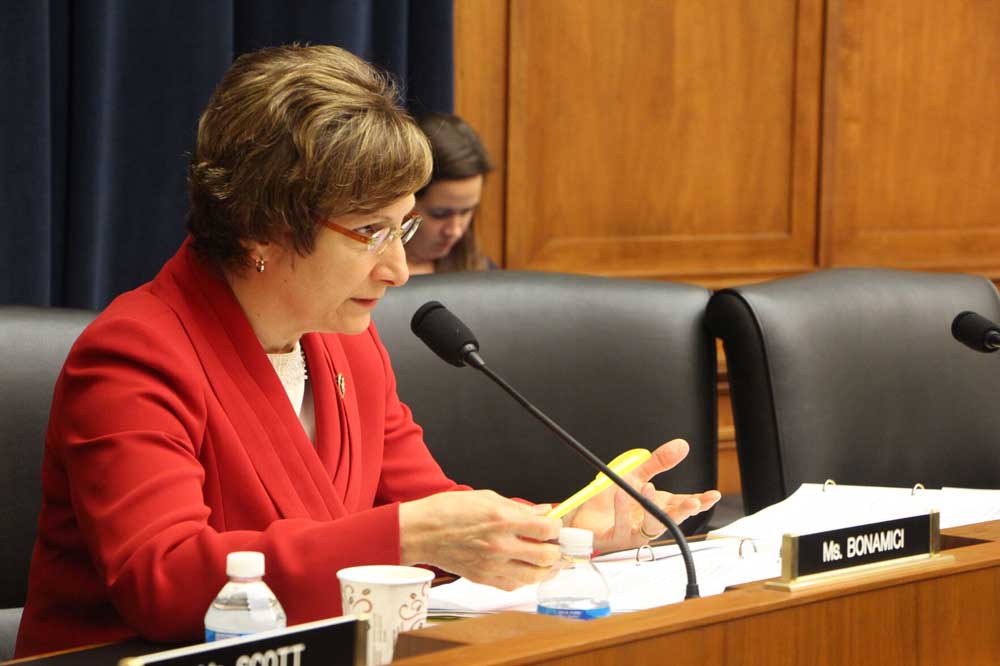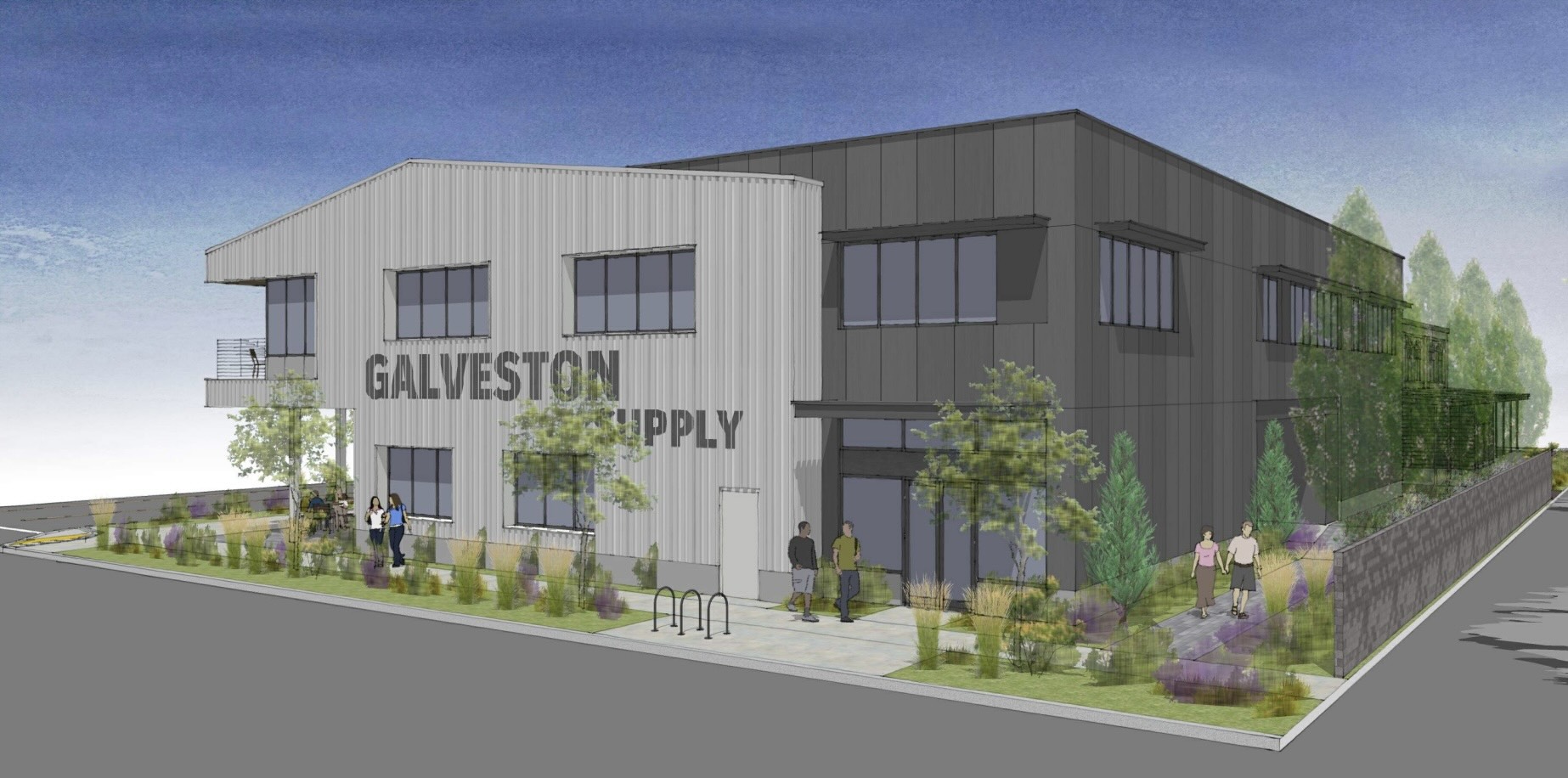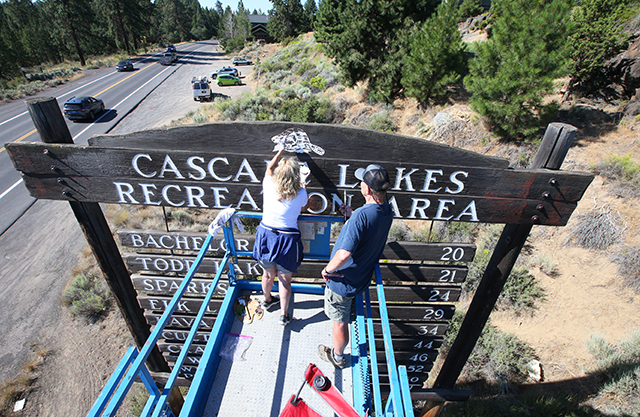U.S. Rep. Bonamici holds forum on apprenticeship expansion bill
Published 10:50 am Tuesday, November 30, 2021

- U.S. Rep. Suzanne Bonamici
As the executive director of Oregon Tradeswomen, Kelly Kupcak wants to see other women — and people of color — have the same opportunities for apprenticeships that helped her raise two sons as a union heavy equipment operator.
She began with the International Union of Operating Engineers in Ohio. Her advocacy for women in such high-skilled, high-paying jobs led her to her current job in Portland in 2017. Together with Pat Daniels, who runs the Constructing Hope pre-apprenticeship program, she wants to open the way for more people like her.
Trending
“I am living proof of what pre-apprenticeship and registered apprenticeships can do,” Kupcak said at an online forum organized by U.S. Rep. Suzanne Bonamici.
“We are working hard as advocates to talk about how our industry needs to change, so that not only women and people of color get in to serve an apprenticeship in the construction sector, they can stay in — because we know they face discrimination and job-site hostility.”
Jenna Hill is a third-year commercial painting apprentice sponsored by District Council 51 of the International Union of Painters and Allied Trades in the Washington, D.C., area. In response to a question from Bonamici, Hill said she did not feel overt discrimination — but she was somewhat uncomfortable at first.
“All the guys I have worked with have been supportive,” she said. “I’ve had a lot of great role models, both men and women. They have helped me come out of my shell a little bit and be more comfortable, whether I’m the only woman on the job site or not.”
Bonamici, a Democrat from Beaverton who represents the 1st Congressional District in Northwest Oregon, is co-chairwoman of the Bipartisan Apprenticeship Caucus and a member of the House Education and Labor Committee.
She organized the online forum not only in recognition of National Apprenticeship Week in November, but to call attention to pending legislation (HR 447) that the House passed 10 months ago to renew the National Apprenticeship Act for five more years. The bill proposes $3.5 billion over five years to expand apprenticeship opportunities by 1 million — and it is the first overhaul since the original law was passed in 1937.
Trending
A 247-173 vote, including 28 Republicans who voted in favor, sent the bill to the Senate, where it has not moved.
“We need the Senate to pass the act,” she said.
At the same time, she said, women account for less than 10% of all apprentices, and women of color earn less than their white counterparts.
“We need to make sure that women and people of color can access this benefit equally,” she said.
“I understand the importance of and potential of apprenticeships. They provide exposure to the working world. They correlate with higher wages. Transferable credentials can be used in other places of employment. They can also lead to some type of long-term employment.”
Big returns
Rep. Bobby Scott, a Virginia Democrat who leads the House committee, said 92% of apprentices get jobs immediately upon completion — at annual average wages of $72,000. He said the Build Back Better budget resolution that contains money for President Joe Biden’s social priorities, as passed by the House, contains $20 billion for workforce training, including enough for the 1 million new apprenticeship opportunities.
Those apprentices, he said, will generate $10 billion in tax collections or savings in other federal spending.
“As we continue to recover from the pandemic, workers across the country are looking for higher-paying jobs that allow them to provide for themselves and their families,” he said. “Meanwhile, the shortage of skilled workers is a major challenge for our employers and our economy. So, we have to use every tool we have to help workers find jobs and prepare them for high-quality employment opportunities.
“Our workforce development system has not received meaningful investment in any of our COVID relief packages. Simply put, we have left our businesses and our nation’s best workforce development initiatives under-resourced at a time when it is most needed.”
Bonamici and Scott said Build Back Better, coupled with the recently signed federal infrastructure legislation, will create 2.3 million jobs that will pay well but demand higher skills.
Aliea Mansaray is a human resource apprentice at City Works DC and a senior at Friendship Tech Prep Charter School. She said her participation shows that all apprenticeships are not tied to heavy industry — and that there is an alternative to college that allows people to earn money while they learn on the job.
“My family was really strict about me going into a career that would guarantee financial stability. I was not too sure about going against them,” she said. “What I did was take a risk — you don’t know anything until you try it.”
Women champions
Two U.S. Department of Labor officials say they are ready to press the case for more women and racial and ethnic minorities in apprenticeships.
“We are hoping to change outcomes for individual women and for their work environments,” said Wendy Chun-Hoon, director of the Women’s Bureau. “For the past 100 years, the bureau has challenged the status quo. It requires bold and sustained investments in women’s work.”
Angela Hanks is the principal deputy assistant secretary who oversees the Employment and Training Administration. Her aunt was the second woman — and the second Black person — to complete an apprenticeship under the International Brotherhood of Electrical Workers in 1978. She is a master electrician now, although under the United Auto Workers.
Hanks said, however, there are still too few women and minorities in apprenticeships.
“It was incredible that she had this opportunity, which has given her a career that has lasted until today,” Hanks said. “We need more women to have those types of opportunities.”







